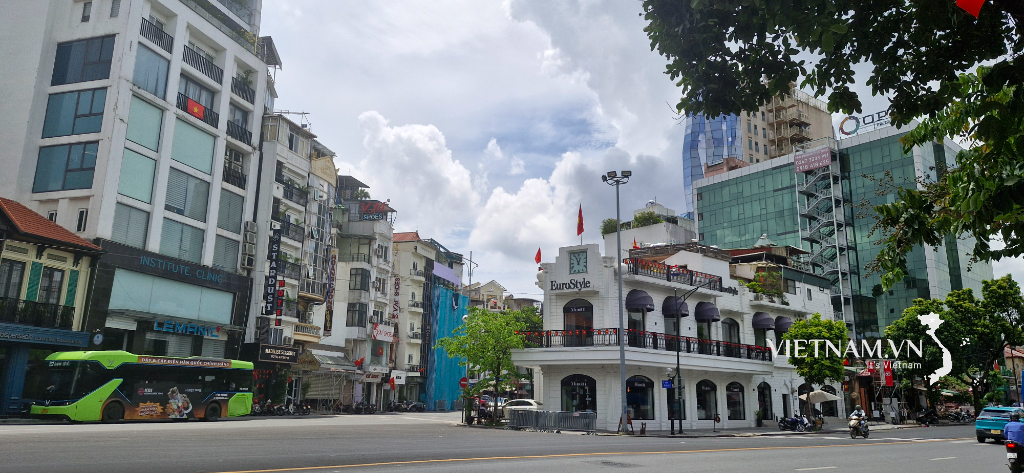
To develop a reading culture, we must first cultivate a reading habit in children.
Maintain consistency to form a habit.
Mr. Pham Van Tuong, Principal of Mau Long Primary School (Mau Long commune, Yen Minh district, Ha Giang province), said that developing a reading culture still faces many difficulties. The school's task is to teach reading and writing to students within the curriculum, while teachers only encourage them to read. Besides that, much more needs to be done to foster a passion for reading in the students, such as building a library and securing a book collection.
Dr. Pham Viet Long, Chairman of the Board of Directors of Dan Tri Publishing House, believes that the reading culture has not been strongly developed and deeply ingrained in people's daily lives. Along with this, the rapid development of technology and modern entertainment media creates competition, reducing the time and attention devoted to reading. Furthermore, access to books, especially in rural areas, remains limited due to a lack of infrastructure. This reflects a significant challenge in forming and maintaining a reading culture.
Young writer Phung Thien believes that while many people love and enjoy reading books during their school years, after graduating and becoming busy with life, they forget the reading habit they cultivated in childhood. Only when faced with life's events and turning points do people return to books to seek peace, reason, and a deeper understanding of the world .
“In my opinion, at any point in time, everyone needs to maintain a reading habit. Reading culture plays an extremely important role in life. It is not just a form of entertainment, but also an endless source of inspiration and knowledge. Reading culture not only helps us discover fascinating stories and vibrant characters, but also broadens our perspective on the world around us. It not only nourishes the intellect and spirit, but also makes life more meaningful and worthwhile,” shared writer Phụng Thiên.
Let's get books directly into the hands of readers.
Over the years, some libraries have maintained mobile library services to schools, villages, residential areas, community reading rooms, industrial zones, and other remote and disadvantaged areas to encourage reading. However, overall, this has not yet changed the current state of reading culture.
In urban areas, to promote reading culture, in addition to book-related events, there are also many activities such as deploying mobile library services in some public spaces; children's book collections in apartment complexes, etc. However, for people in rural and remote areas, where the library system is limited and promotional efforts have not been intensified, promoting reading culture is likely to be very difficult.
To develop a sustainable and widespread reading culture, Dr. Pham Viet Long suggests that, first and foremost, it is necessary to raise awareness of the value of reading through a national communication campaign; coordinating with media outlets, schools, and social organizations. The government should build and upgrade the system of public and school libraries, especially in rural areas; support publishers in releasing quality, affordable books and encourage book distribution to remote areas.
Many also believe that it is necessary to continue building and upgrading the quality of public libraries, reading centers, or reading corners in educational institutions and communities, encouraging early reading. Along with this, it is important to create an attractive and diverse selection of books. Seek out and provide engaging literary works, including novels, children's books, science books, history books, and reference books. Ensure that books are suitable for all ages, interests, and concerns of readers.
Mr. Nguyen Huu Gioi - President of the Vietnam Library Association:
We must stay close to the needs of the reader.

To continuously improve reading culture, a market research strategy is needed to plan the publication of good books that meet the needs and tastes of readers. The quality of the content of publications needs special attention. Research is also needed to develop more e-books and audiobooks to serve the people in the context of the fourth industrial revolution. It is necessary to strengthen the acquisition of books, newspapers, and information resources, building an increasingly rich archive of materials with the motto of closely following reader needs, promptly adding valuable digital materials and collections that have a positive impact on economic, cultural, and social development, and poverty reduction in the locality.
Source





































![[Photo] General Secretary To Lam receives the Special Envoy of General Secretary and President of China Xi Jinping](/_next/image?url=https%3A%2F%2Fvphoto.vietnam.vn%2Fthumb%2F1200x675%2Fvietnam%2Fresource%2FIMAGE%2F2026%2F01%2F30%2F1769759383835_a1-bnd-5347-7855-jpg.webp&w=3840&q=75)



































































![OCOP during Tet season: [Part 3] Ultra-thin rice paper takes off.](/_next/image?url=https%3A%2F%2Fvphoto.vietnam.vn%2Fthumb%2F402x226%2Fvietnam%2Fresource%2FIMAGE%2F2026%2F01%2F28%2F1769562783429_004-194121_651-081010.jpeg&w=3840&q=75)

![OCOP during Tet season: [Part 2] Hoa Thanh incense village glows red.](/_next/image?url=https%3A%2F%2Fvphoto.vietnam.vn%2Fthumb%2F402x226%2Fvietnam%2Fresource%2FIMAGE%2F2026%2F01%2F27%2F1769480573807_505139049_683408031333867_2820052735775418136_n-180643_808-092229.jpeg&w=3840&q=75)





Comment (0)